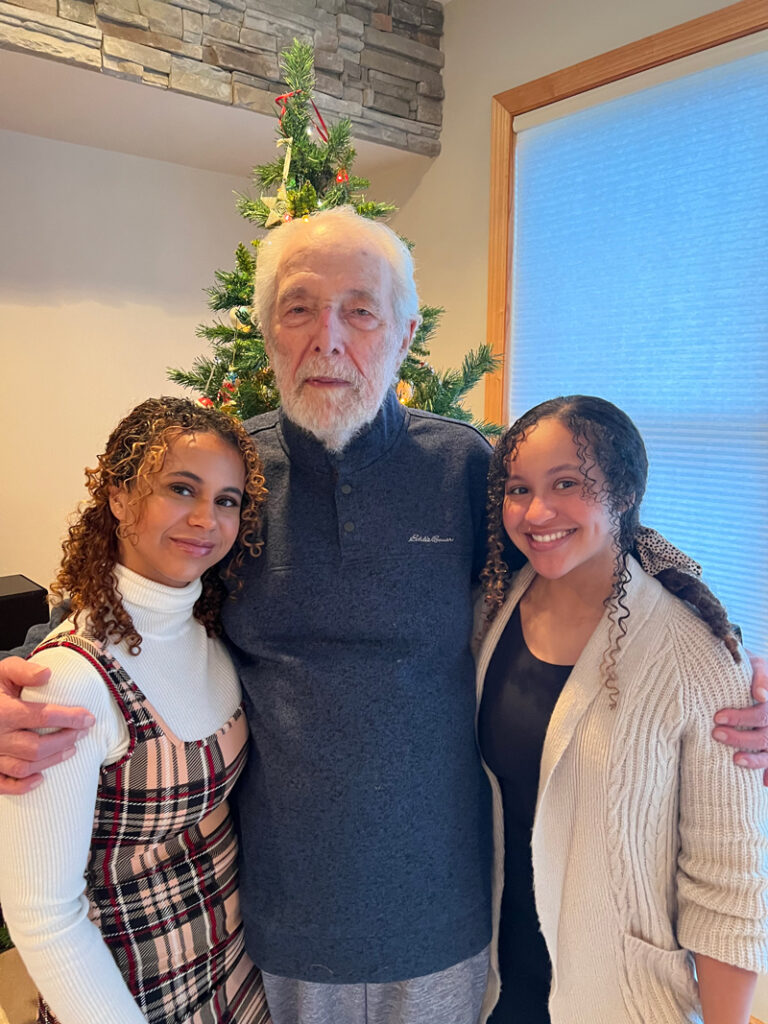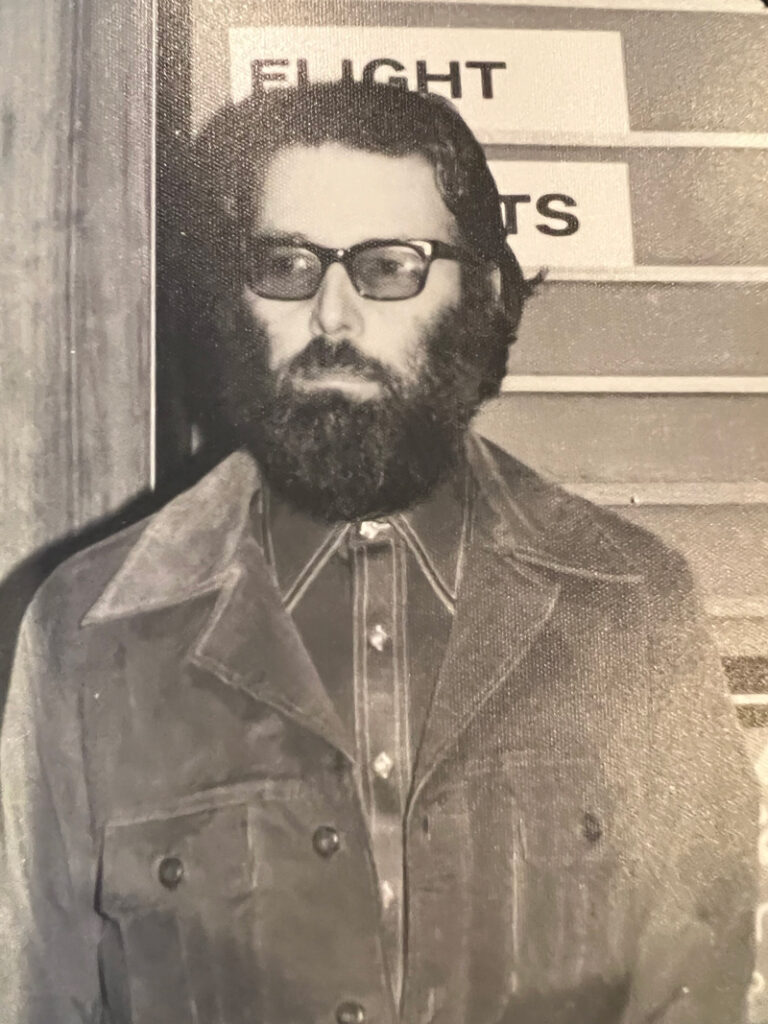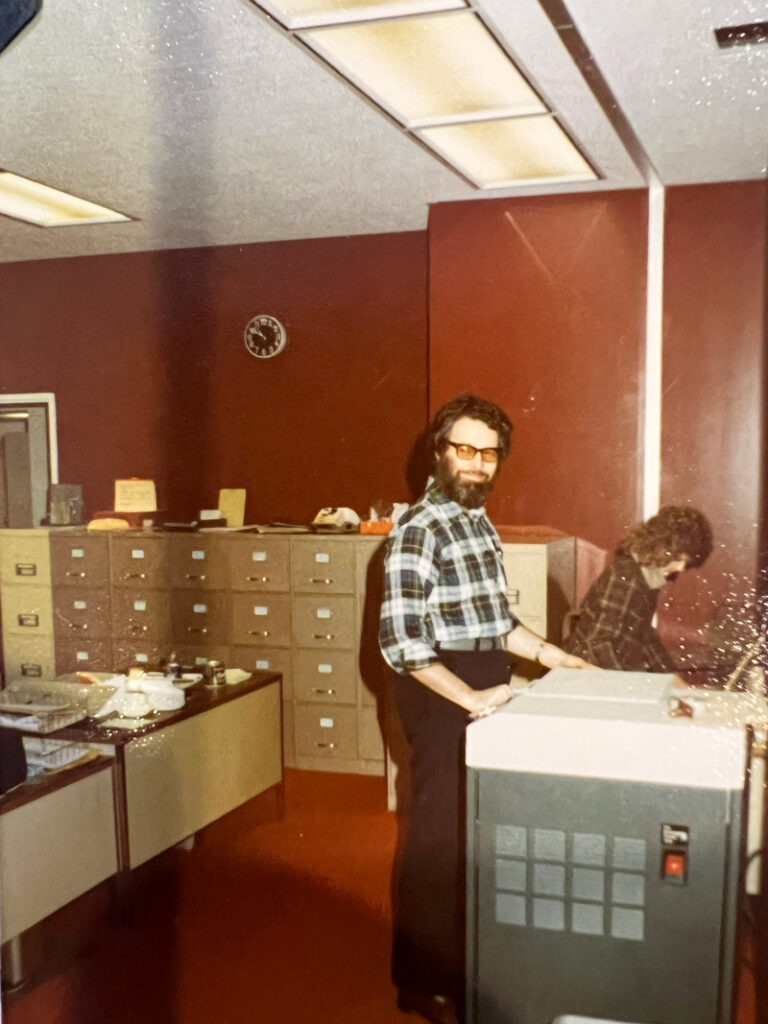As Head Cataloger at Hennepin County Library I discovered there were historical events our card catalogue denied the existence of, like the German genocides in Southwest Africa from 1904 to 1908. We created new headings: Native American Holocaust (1492 to 1900), Romany Holocaust and Gay Holocaust because these also happened during the Nazi era. We created new categories: Affordable Housing, Mass Incarceration, Middle Passage and White Privilege. There were no headings for those subjects!
— Sandy Berman
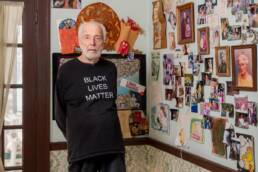
Roots: Eastern Europe, Chicago, Los Angeles
My parents were Samuel and Dorothy Berman. My dad was a Latvian Jew. He and his parents came to the United States as immigrants in about in 1906. They lived for a while on the East Coast and then ultimately migrated to Chicago. My mother was a Polish Jew, born in the United States. Her family migrated from Connecticut to Chicago.
The love story, as told by my parents, was that they both had jobs working at the Merchandise Mart—that giant complex in downtown Chicago, that, at the time, had just opened. They were on the escalators going in opposite directions and nearly jumped off at the sight of each other. Love at first sight.
I grew up in Chicago until I was eight years old. In 1942, during the war, we moved to the West Coast and lived with relatives in Boyle Heights, a Los Angeles neighborhood which was then largely Jewish-occupied. Now I think it is mostly Chicano. Later we moved to an area near Crenshaw and Exposition in South Los Angeles. I hesitate to call it a ghetto but, it was. It had a concentration of Jewish families then. By the time I was a teenager, my folks had bought a small house on Somerset Drive just off Exposition Blvd. My high school was a mile away.
Breaking the Gender Barrier at the Los Angeles Public Library
I’d say I was somewhat unusual in that I preferred reading to doing almost anything else. I had friends, but I wasn’t involved in organized sports and did not do a lot of partying. I read everything, mostly from the library.
In high school I crashed the gender barrier at the Los Angeles Public Library. The director of the branch was a proud member of the Daughters of the American Revolution. It took a while to convince her that it would be OK to hire a boy as a messenger clerk. I worked there for much of high school and into my first year of college.
On the first day she put a wet cloth in my hand, pointed to the fairy tale section, and directed me to wipe up the yellow puddle deposited there by a seven-year-old. That was the beginning of my library career. It could only improve from there. My job was shelving, but eventually she let me put some public displays together. I remember doing one about the United Nations, which was not a DAR favorite.
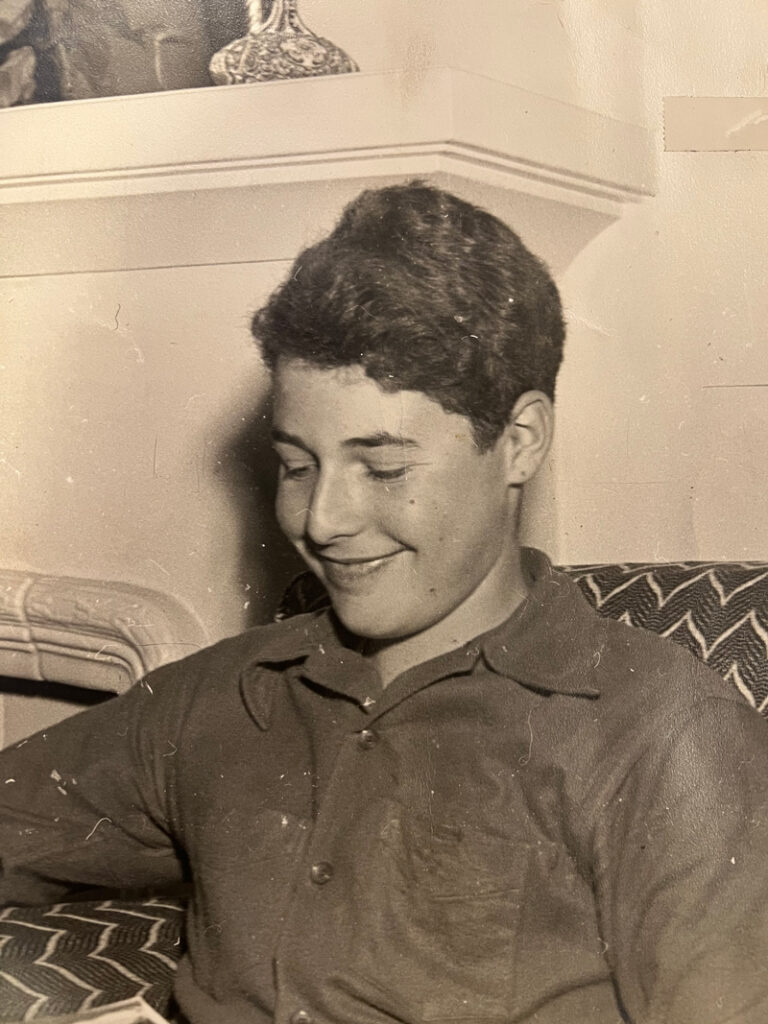
In college I got a job with an architectural firm, Kistner, Wright and Wright, because I knew how to type. (I had learned to type in high school because my handwriting was so awful it was a matter of necessity. It was the most useful course I’ve ever had in school.) I typed specifications for them on stencils for building projects. Their office was located practically across the street from the main building of the Los Angeles Public Library. I would eat my lunch on the library steps. (A few years ago, the building partly burned down. That story is told in The Library Book.)
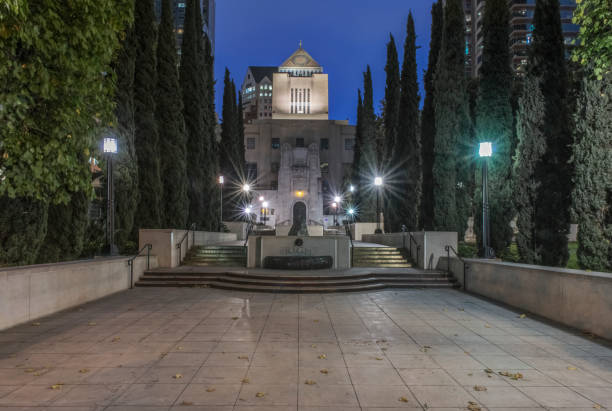
When I worked Saturdays, I listened to Gunsmoke and other folklore dramatizations on the radio. I got into a little trouble with the company because I objected to their blatant propagandizing for Republican candidates.
From 1951 to 1955, I was an undergrad at UCLA. I majored in poli-sci and minored in English and anthropology. One instructor influenced me politically and intellectually: Stanley Diamond a Marxist anthropologist, and poet. I remember doing my term paper for him on the origin of the state, the family and private property. I also spent a term as a teaching assistant for a well-known children’s book author who was teaching children’s literature in the English department.
Military Librarian
I joined the Air Force ROTC because that gave you at least a temporary deferment for as long as you were in their program, but as soon as my college work was completed, deferment was withdrawn, and I was subject to the draft. I decided to control that timetable by volunteering for the draft, serving two years instead of three. That led to basic training at Fort Ord on the Monterey peninsula. At one point they asked, “Raise your hand if you can type” I raised my hand. I was given extra work to do in the company office, but it also led me to be assigned to the army’s stenography program outside of Indianapolis. This course would have cost me thousands of dollars if had chosen to pursue it as a civilian. I reached the highest level: 120 words a minute dictation and 90 words typing.
Afterward I got shipped to the United States Army Headquarters of Europe located in Heidelberg, Germany. Somewhere in my resume there was a note that I had contributed to the Daily Bruin, the UCLA student newspaper. Based on that experience, I was assigned to the information division, writing pamphlets. I never took a word of dictation.
While I was in the army, I met a young German woman who was finishing gymnasium high school and we got engaged. After the army, we moved to Washington, D.C. My career aspiration was to be in the foreign service. I passed the written exam. I still needed to take oral exams. When they found out I was engaged to an “alien” the interviewer said he didn’t think that was appropriate for a foreign service officer. I indicated I didn’t believe it was any of their business. I didn’t pass the exam.
Stranded in Washington, I looked for library work. I was told they would hire me if I enrolled in library school at the Catholic University of America. For four years I worked full time in their library, while going to school nights and weekends. While there, I did some research on book theft for them. Monks were the group most likely to steal from their library.
There was a course we had to take: Library and Society. It was taught by a guy in the naval reserve. He showed up for the first day in class, wearing his full uniform. I dropped the class and waited until I could find somebody not showing up in a military garb—someone who seemed to be more of a human being. When I did finally take it, the professor spent the first ten minutes lecturing us on how nobody in any library should buy anything on or about Paul Robeson because that would directly contribute the international communist conspiracy. That was the closest we got to instruction on intellectual freedom. This guy was the official censor for the regional chapter of his religious order of Brothers.
I somehow got through library school and produced a thesis, 597 pages, on Spanish Guinea, an annotated bibliography. In the past year a young man from England, doing his doctoral thesis on Spanish Guinea, stumbled upon my thesis. He asked me permission to get the University in Barcelona to download it onto their website, so now, 60 years, later, my dissertation is available to anybody anywhere.
With the German woman, I went back to Germany as a civilian. I applied for a job at a U.S. Army library in Karlsruhe in the South of the country, near the Black Forest. The army had a policy of only hiring women for such positions, part of their effort to supply American female camaraderie for the poor boys overseas. I was the first male they ever hired.
I was put in charge of a library that also served the families of soldiers. After a year I was unceremoniously removed from that job because I told the wife of the base commander it was closing time and she had to leave. For that I was sent to Manheim, which was considered the Siberia of library land.
Opening the Library to the GI Underground Movement
It turned out to be fortuitous. In Manheim I had more intensive interaction with GIs themselves I learned about the GI underground movements and began circulating their publications in the library. At that time, 1965-66, there was a flowering of GI movement newspapers. I made sure we had subscriptions to the City Lights Journal and Ramparts.
We held an art exhibit of GI art—a first for the library. We had poetry readings, at the library or the service club, works the men had written themselves, works I chose and read, and favorites that they read. Alan Ginsberg and Jack Kerouac would get chosen often. I read Walt Whitman, Garcia Lorca, Gregory Corso, and Amiri Baraka (then he was still Leroy Jones).
We created a journal—which the GIs titled Yin Yang—published under the auspices of our library. I did not ask my superiors for permission because they probably wouldn’t have allowed it. Yin Yang included poetry, photographs, artwork, short stories, and reviews. It brought immense satisfaction to the guys who worked on it. We had just printed up and were getting ready to distribute the second issue when I was visited by a Lieutenant Colonel who told me other people had been saying that this magazine might be subversive, and I might want to rethink continuing this. While he was issuing his warning, he was sitting on my desk in which was the second edition. We published it. I think that contributed to my demise there.
Becoming an Activist Librarian
My time at Manheim was an opportunity to find out what I could and couldn’t do personally in terms of library activity. It was there I also realized the card catalogue was subpar, and that everything wasn’t OK on the access end of librarianship, not just in the army, but everywhere. I began issuing a bimonthly or trimonthly newsletter about new books, and new materials, with annotations that anybody could pick up.
Working with these GIs, critical of the U.S. Army ultimately led to my decision to leave army social services. I divorced my wife, so that made that easier. I spent the next year as the college librarian at Schiller College a school devoted to the undergraduate education of American offspring of army, commercial and diplomatic personnel in Europe. My job was threefold: teaching English, creating a library, and running the bookstore.
I lasted there for a year or two. When a colleague and I invited an East German poli-sci professor to guest lecturer at our college, the Chancellor got wind of it and uninvited him. There was a convocation where the whole business was aired publicly. My bookstore choices came to the attention of a husband and wife who worked at St. Olaf, in Minnesota. St. Olaf sent students to Schiller College every year. To vilify me, they accused me of dealing and using dope, which was utterly untrue, but kind of exciting.
Radical Librarian in Los Angeles, 1968
I went back to the states and worked for a year at UCLA as a periodicals librarian. That is where I met my second wife, Lorraine, an African American woman from Albany, NY. She worked in the basement, and I worked on the 1st floor. We had mutual friends. We became engaged in 1968 and were married in San Francisco. She had been divorced and had two children. I adopted her two children after their father died, which was maybe a year after we married.
At UCLA I testified in court on behalf of a local alternative paper that was being prosecuted by the local District Court for a photograph they published embedded in an advertisement for a music event. I was a witness for the defendant by virtue of being a periodicals librarian. I brought in copies of periodicals from the library that were more sexually explicit than the photo they were complaining about.
Librarian in Uganda and Zambia
For the next 4 years my new wife and our small children lived in Uganda and Zambia. I worked at the Kampala International University and then at the Makerere University in Uganda. I started out cataloging, because the practice was that every newcomer should spend at least two or three months in cataloging to get a sense of the collection. That turned out to be important to my personal development.
I discovered that African university libraries were totally dependent on the American Library of Congress cataloging. The words they used for Indigenous African people were those created by colonizers. Geographical places were still catalogued by colonial names. I wrote a letter of protest to the American Library Association. The return letter suggested I might have enough examples to write a book, so for the next two years in addition to full time work, I was compiled material for what became Prejudices and Antipathies. In the end, ALA decided I was not sufficiently respectful, so they refused to publish it. It was published by Scarecrow Press an independent private publisher in New Jersey. It won a number of awards.
When Idi Amin came to power in Uganda, I was called to the U.S. Embassy. They told me they were encouraging all American Jews to leave the country because of the anti-Semitism of Idi Amin. Though he wore an insignia on his uniform from an Israeli military school, he was making public pronouncements that Hitler hadn’t gone far enough with the Jews, and he made it clear he did not approve of interracial marriage.
Uganda had become perilous for people like us. The advice was to get the hell out of there as soon as possible. We were escorted to the airport by a pin-striped armed, embassy official. The plane was mostly full of Asians, also a target of Amin’s hatred, who were in the process of being expelled.
Getting to Minneapolis
We hadn’t been able to make new job arrangements given our precipitous departure from Uganda. We did not end up on the street, thanks to the generosity of family. I feverishly applied for jobs. Mutual friends conspired to lead me to Mitch Friedman who was the director of technical services at Hennepin County Library in Minnesota. He had just lost his head cataloger, and he needed somebody fast, capable creating a code for cataloging audiovisual materials. He took a chance on me.
The four of us, fresh from central Africa, arrived at MSP one blizzardy day in January 1973, and I began what turned into a 27-year project, remaining in that same rank and class, as head cataloger.
Fighting for Library Access on Many Fronts as Hennepin County Library Head Cataloger
Bit by bit we, at Hennepin County Library, uncovered anomalies and deficits in standard cataloging procedures and reformed them locally. We also tried to get national authorities like the Library of Congress, and the American Library Association to act, but when that seemed unlikely, we just did it ourselves, not something easily done—departing from established standards.
We aimed for unbiased and authentic language. We replaced Gypsy with Roma or Romani, Hotentots of South African became the Khoekhoe, the Bushmen became the San people, the Lapps from Norway and Sweden became Sami, the Galla, Ethiopia’s largest ethnic group, became Oromo and the Eskimo became the Inuit.
We got rid of arcane language. Thirty years ago, if you wanted material on light bulbs in a library catalog, you would have to look under “incandescent lamps.” Looking for information on toilets? You would have to look under “water closets.” At a technical services conference, I spoke about headings like these, that were out of touch and not doing the profession of any good in terms of PR. A few hours later, a person from the Library of Congress announced to the audience, “If Sandy is in the audience, you’ll be happy to learn that I spoke with our department in Washington over the lunch, and we have converted water closets to toilets.” I retorted from my seat in audience, “I’m flushed with pride.” I think that was the high point of the conference.
We also created new categories. Terms like affordable housing, mass incarceration, the middle passage of the Atlantic slave trade, or “white privilege.” There were no headings for those subjects! Our profession was making it difficult for a teacher to assign or a student to study white privilege. Or white supremacy, or prison abolition.
There were historical events that our card catalogue denied the existence of, like the German genocides in Southwest Africa from 1904 to 1908. Two genocides of the Herero and Namaqua peoples, conducted by the German imperial army, took place during this period, that, in almost every detail of their execution were precursors of the Holocausts of 1933-45 carried out by Nazi Germany.
To find out about the genocidal policies toward Native Americans in the Western Hemisphere from 1492 until at least 1900, one would have to look under Indians, Treatment of. We created the heading Native American Holocaust (1492 to 1900). We also added headings for Romany Holocaust and Gay Holocaust because these also happened during the Nazi era.
We created and designed headings for fictional characters and places. People are often more likely to know the name of character than the author. So now you could look under Holmes, Sherlock and fictional places like Dune and Narnia. Descriptive cataloging means adding access points.
We also added access points to introduce readers to small and alternative presses, ethnic or political or feminist presses, earmarking them as not mainstream and representing otherwise marginalized voices.
We removed English and Latin abbreviations to describe content you know like P or ILL and replaced them with pages and Illustrations. The goal was to make the catalogue as comprehensible and user-friendly as possible.
By publishing a bimonthly HCL cataloging bulletin that all that was available to the world, we helped to make changes globally. We invited feedback in letters to the editor, suggesting ways to make the heading more accessible.
We also fought for access on the acquisition side. Libraries generally bought 200-300 copies of best sellers. Eight months later they’d sit on the shelf after the frenzy had passed. That money spent on 200 extra copies could have gone to buying alternative press and non-mainstream books: labor materials, sexuality materials, free thought works, etc. In this way the libraries work with bookstores and publishers to limit people’s access to written works.
I was forced to retire in 1999. After I retired, many of the changes we made over 27 years were demolished and replaced by standard records. Hennepin County became like every other library. The library system has been privatizing steadily. Now, for example, you can pay to get a best seller right away while everybody else waits in line. I have been fighting this privatization from the sidelines.
Fighting the Class and Race Discrimination inherent in Library Fines
One of the most odious private money schemes of the 1980s and 90s was brilliant idea to raise $100,000 a year by doubling the juvenile fine rate. We successfully fought that one. I had founded the task force on hunger, homelessness, and poverty within the American Library Association. We created a policy on library services to poor people that made it through the Minnesota Library Association. We were able to present it, word for word to the national conference in 1990 where it became national standard. It called for eliminating economic barriers to library access.
Children’s librarians wrote a splendid memo to the administration saying why fees were harmful, especially to kids of color, keeping many from coming into the library.
Our petition merely asked the administration to abide by the memo that the children’s librarians had written and withdraw the plan to doubling the fines. I talked to a friend of mine who worked for the alternative weekly, The City Pages. He wrote a little piece in the next issue was titled something like Library Nickels and Dimes Kids. A week later everyone got a memo saying this isn’t happening. That was a victory of sorts but it’s kind of negative victory. However, the move in the last few years to eliminate late charges in one library after another, owes its inception to our work in Minnesota.
Protecting Alternative Press Freedom in the Twin Cities
At the annual conference of the MLA October1987, I drafted this resolution:
Whereas, over the past several months Twin Cities alternative bookstores and information sources such as a Brothers Touch, Northern Sun Merchandising, Mayday Books, Pathfinder Books, the Central America Resource Center, Backdoor Anarchist Books and Paul Robeson Bookshop, together with sanctuary churches and human rights groups have experienced window smashing, break ins, thefts, rifled files, and telephone threats, and
Whereas the police, government leaders and mainstream media have failed to acknowledge, condemn, and combat this outbreak of political harassment, and
Whereas librarians traditionally value and promote the free and unshackled expression of diverse viewpoints,
Be it resolved that the Minnesota library Association deplores the current wave of political intimidation and asks the Twin Cities news media to better report and editorialize on these events and urges local authorities to take immediate steps to safeguard free speech and freedom of the press in the Twin Cities.
It passed unanimously.
The Columbus Quincentenary
The period between 1990 and ’91 was one of the finest times in recent local and national progressive history. The upcoming Columbus Quincentenary in 1992 galvanized an exuberant collaboration among Indigenous, environmental, feminist, and other progressive groups that I hadn’t experienced earlier or since. Everybody had a central focus. We came at it from different angles, but the work was amicable and forward-looking, making a connection between the past and present and focused on how policies need to be changed. We produced a tabloid and put on lots of programs.
At the MLA annual conference, we led a workshop on the topic: Columbus Quincentenary: is it something worth celebrating? I was the moderator. Lori Marvin, Native American racial justice coordinator for Minnesota Clergy and Laity Concerned, Ricardo Levins Morales, Ruth A. Denny, then editor of The Circle, and Joanna O’Connell, professor at the University of Minnesota, department of Spanish and Portuguese, explained to the librarian audience why the quincentenary was a lousy idea and why it was appropriate to subvert and hijack it. Shortly after, we passed an MLA quincentennial resolution, imploring our colleagues everywhere to treat this as an opportunity for uplifting Native voices. We used the term Native American Holocaust in the resolution. We took the resolution to the American library association conference where it also passed and became the official standard or guideline for how libraries should approach the 500th anniversary.
Continuing Library Activism, Post Retirement
Once I retired, I wrote a quarterly column for a newsletter called The Unabashed Librarian. In the final issue, in 2021, I advocated for the addition of the subject headings: Afro Pessimism, Racial Capitalism, and Land Back Movement as well as continuing to advocate for the Library of Congress to add White Privilege, Mass Incarceration, and Institutional Racism. I pointed out that the struggle in the schools to teach about race is connected to library access and cataloging.
I have also been active in the Minnesota chapter of the Social Responsibilities Roundtable, working with librarians on conducting programs and creating displays of alternative literature in our libraries.
Advocating for Reparations in a Sundown Town
I have been a member of an affordable housing committee in Edina for many years, recognizing its peculiar and embarrassing racist history as one of the sundown towns described in James Loewen’s book of that title; towns that for many decades would not countenance people of color, especially Black people, and in some cases also Jewish people, within the town parameters after sunset. They could be there to clean houses and mow lawns during the day but couldn’t live there. Beyond that apartheid was achieved through redlining and hundreds if not thousands of restrictive covenants that buyers and sellers would sign.
In 2016, I attended a tumultuous Edina City Council session that lasted three or four hours, after a Black person was harassed by Edina police for walking in the street when the sidewalk was cluttered with construction. That incident prompted an outpouring of protest.
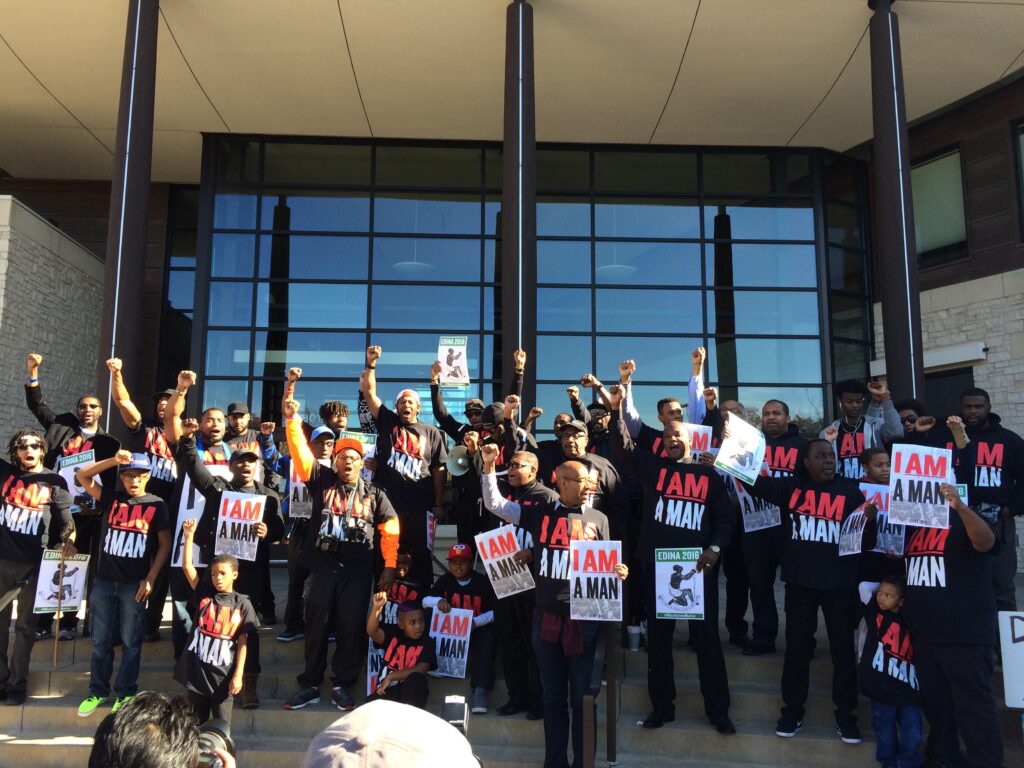
I put forward the proposal for a ceremonial apology for historical and current discrimination, and that we begin considering how to conduct reparations, perhaps in the form of sizable contributions to a BLM foundation. One council member reacted positively to the idea that something needs to be corrected. They did allow the 50th and France area to be decorated with artwork and so on by Black Lives Matter groups at one point. They also supported the Just Deeds campaign. That’s good too, but in neither case did it cost them a whole lot of money.
I’m trying to keep alive the idea of substantial reparations. At my age I don’t expect to see it in Edina, but I continue to hope it will happen at some point.
